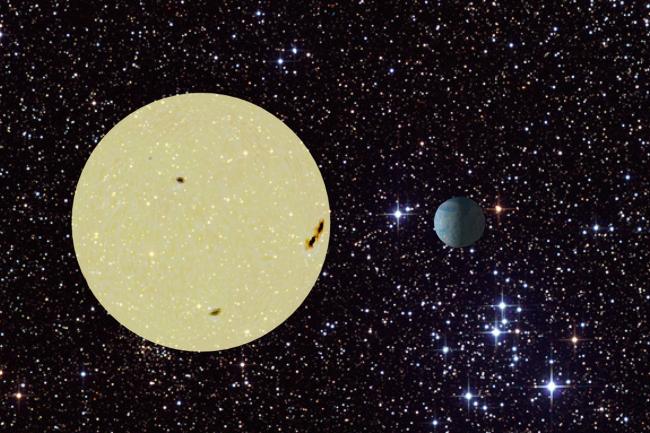ExoLab
The Laboratory for the Study of Exoplanets (ExoLab) is a project designed to give high school students hands-on experience studying planets orbiting other stars. Classroom activities provide students with the opportunity to collect their own exoplanet data using the MicroObservatory Robotic Telescope Network, analyze the observational results they obtain, and create mathematical models to describe planetary motion. The ExoLab program is designed and managed by researchers in the Science Education Department at the Center for Astrophysics | Harvard & Smithsonian.

Inside the Exolab visualization lab.
Exoplanets in the High School Classroom
Most high schools don’t own telescopes capable of studying exoplanets. However, the telescopes used by modern astronomers are controlled by computer, with many observational tasks that can be automated. That opens up the possibility for remote-controlled observatories accessible to the general public. The ExoLab uses that ability to provide access to the professional-grade telescopes of the MicroObservatory, letting high school students participate in real astronomical research.
The MicroObservatory telescopes are physically located at the CfA’s Fred Lawrence Whipple Observatory (FLWO) in southern Arizona, but they are designed to be controlled via a simple interface on a web browser. The ExoLab provides structured classroom activities to teach students how to use the MicroObservatory telescopes to measure the eclipses produced by exoplanets transiting their host stars, scheduling observations to coincide with these passages.
ExoLab activities show students how to collect, process, and interpret exoplanet data. The project website includes teacher’s guides and lesson plans, instructions for students, information on exoplanets, and a community site for instructors.
Most high schools don’t own telescopes capable of studying exoplanets. However, the telescopes used by modern astronomers are controlled by computer, with many observational tasks that can be automated. That opens up the possibility for remote-controlled observatories accessible to the general public. The ExoLab uses that ability to provide access to the professional-grade telescopes of the MicroObservatory, letting high school students participate in real astronomical research.